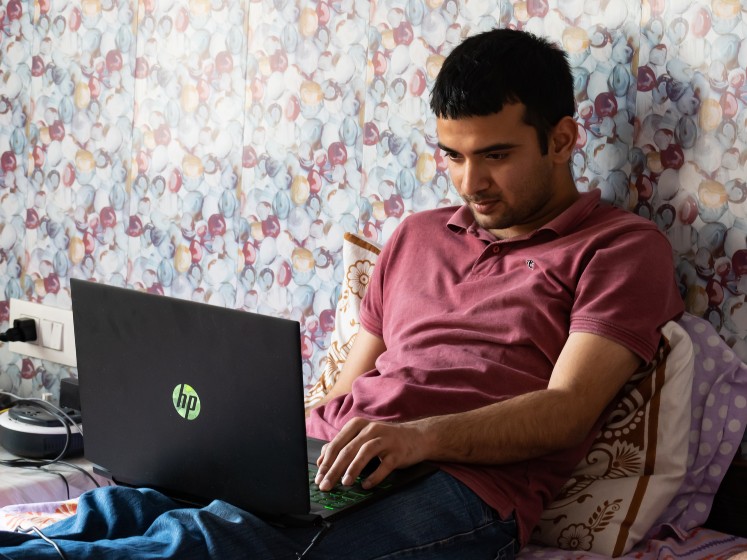 Man working on laptop. Image by Rajesh Balouria from Pixabay
Man working on laptop. Image by Rajesh Balouria from Pixabay
Young Londoners have been struggling to live and work in cramped housing during lockdown, shows new research by LSE London.
Researchers surveyed Londoners who share their homes with others—either renting with flatmates or partners, or living with parents. Most were between 20 and 39 years old.
The survey, sponsored by the property developer Pocket Living, found that 37 per cent of those who were living in shared accommodation, were both living and working in their bedrooms during lockdown. Many reported that this was affecting their mental and physical health.
Kath Scanlon, Distinguished Policy Fellow at LSE, said: “People living in shared homes often compromise on space because they expect to spend most of their time out and about. But space constraints pose real issues when several adults are working from home, and our research highlighted practical problems like noise, lack of work surfaces and privacy. If home working is to become standard practice then we need to adapt our homes and relationships accordingly.”
Eighty per cent of those surveyed worked from home during lockdown, and many felt that this added to the strain of living with others.
One respondent said: “I am basically in lockdown in a bedroom, eating and working here.”
Nearly half of respondents (46 per cent) reported not having a suitable place to work and many were affected by noise (44 per cent) and a lack of privacy (43 per cent) as they tried to juggled work and life in the same space.
Many of the problems reflected physical space constraints, with about half of respondents not even having a kitchen suitable for eating in or for more than one person to be in at a time. Living areas have been repurposed as workspaces, meaning there is no space to relax and no psychological separation between leisure and work.
One person surveyed said: “I have to build my desk every morning and disassemble it every evening because I’m located in front of the TV in the living room. I work a lot of overtime but this means working overtime in my bed because I can’t be working after hours in my housemates’ living space.”
Another highlighted the tension of being a key worker and living in a shared space. They said: “[I’m] concerned about safety as I am a key worker. This has caused further issues and tension in the house.”
Despite the challenging living conditions reported during lockdown, young Londoners’ commitment to their city remains strong, with less than one in ten (9 per cent) reporting a desire to leave the capital.
Marc Vlessing, Pocket Living’s CEO and founder, said: “The impact of COVID lockdown has illustrated just how much the housing crisis has hurt the very people we need to help get London back on its feet.
“Despite the challenging issues uncovered by this research, there is little sign of young Londoners’ wanting to leave our vibrant capital.
“But, if we’re going to build the high quality, affordable homes key workers need, we must look quickly at small but effective changes we can make to the planning system to unlock land for more affordable homes.”
More information about the survey’s findings can be found on LSE London’s blog.